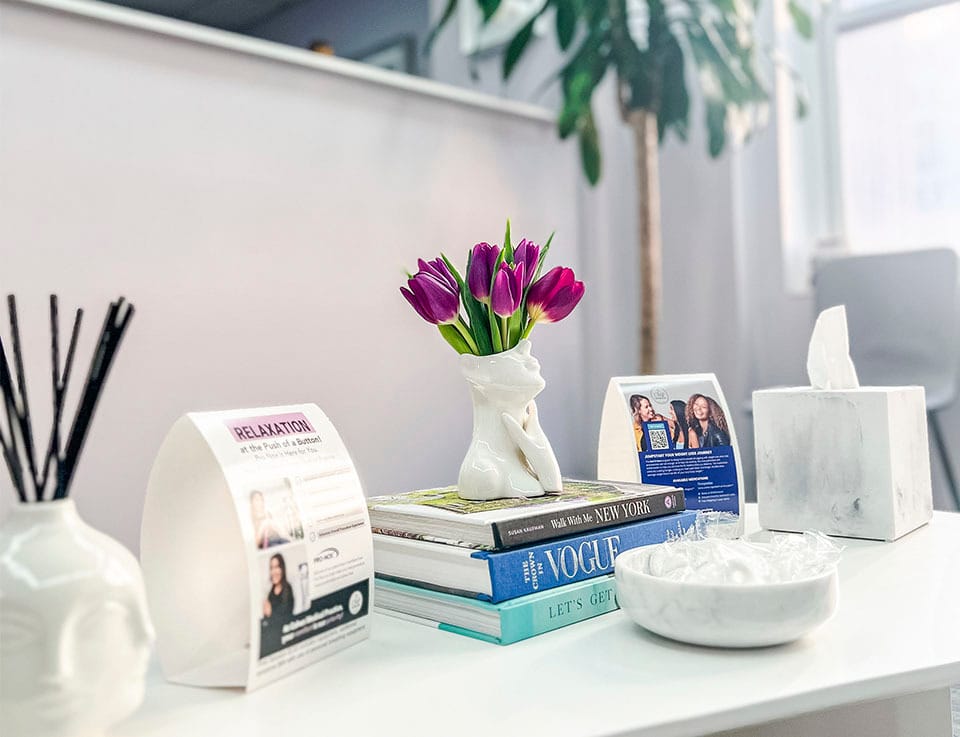What Is a Breast Biopsy?
A breast biopsy is a diagnostic procedure that’s done to determine if a suspicious area on your breast is cancerous. Tissue that’s removed during a breast biopsy is examined under a microscope by a pathologist to determine if you have cancer or any other type of breast disorder.
Cohen Medical Practice (CMP) is your best option in Midtown NYC when you need experts you can trust for your reproductive health as well as your overall health and wellness. Dr. Felix Cohen is the founder of this practice and a board-certified gynecologist.
A wide range of services are provided at this highly rated clinic, such as:
- Routine GYN care
- Birth control
- Fertility services
- Abnormal uterine bleeding
- Pelvic pain
- Pelvic inflammatory disease
- Menopause care
What Are Common Reasons for a Breast Biopsy?
If you or your physician notice changes in your breast, your doctor may recommend a breast biopsy.
Some examples of reasons for a breast biopsy include:
- A lump or thickening in your breast
- An abnormal fluid or bloody discharge coming from your nipple
- A suspicious area discovered on an MRI, mammogram or ultrasound
- Changes in your nipple or areola such as dimpling skin, crusting or scaling
Don’t panic if your doctor tells you that you need a breast biopsy. Approximately 80 percent of breast biopsies turn out to not be cancer, but a biopsy is the only way to know for sure if your symptoms are caused by cancer or a less serious condition. The prognosis for successful treatment of breast cancer is good when it’s discovered early.
Are There Different Types of Breast Biopsies?
There are several different types of breast biopsies.
Your NYC gynecologist determines which is the best type of breast biopsy for you based on factors such as:
- The size and location of the suspicious area
- Whether there are multiple areas that appear abnormal
- Your overall health
- How concerning the suspicious area appears
Based on the characteristics of the abnormality, the least invasive breast biopsy is recommended whenever possible.
Different types of breast biopsies include:
- Fine needle aspiration biopsy. A fine needle is used to collect fluid or cells from a lump, which is the quickest way to determine if the lump is a fluid filled cyst or a solid mass.
- Core needle biopsy. Your doctor removes tissue samples from the lump using a thin, hollow needle. Ultrasound is used to help guide the procedure. A core needle biopsy can also be done under the guidance of an MRI.
- Stereotactic biopsy. For this type of biopsy, a mammogram is used to pinpoint the location of the lump while tissue samples are extracted using a needle or vacuum-powered probe.
If a needle biopsy is inconclusive, your doctor may recommend a surgical biopsy so that all or part of a lump or suspicious mass can be removed. Once it’s removed, the pathologist determines if it was cancerous. If it was, you may need a second surgery to remove additional tissue.
How Is a Breast Biopsy Done?
The exact steps involved in a breast biopsy depend on which type of biopsy your doctor recommends.
The main steps include:
- Specialized imaging equipment used to pinpoint the location of the mass
- One or more tiny incisions
- Tissue removed from the breast
- Biopsy markers placed
- The incisions closed
You won’t feel pain during a biopsy, but you may feel pressure. The total time of the procedure varies from around 15 minutes up to an hour. After the tissue has been removed, it’s sent to the lab to be examined by a pathologist. After the pathologist has analyzed the sample, the results are sent to your CMP gynecologist, which may take a week or two.
A breast biopsy doesn’t typically involve general anesthesia unless you’re having a surgical biopsy. In most cases, you’re able to go home the same day and resume normal activities. If you’ve had a surgical biopsy, it may take up to a week for you to be able to resume everyday activities.
Does a Breast Biopsy Have Any Risks or Side Effects?
All medical procedures present some degree of risk. In most cases, a breast biopsy is minimally invasive, so there are few risks or side effects.
Your CMP team does everything to reduce the risks of side effects, but you may experience mild side effects such as:
- Swelling
- Bleeding
- Bruising
- Soreness
Let your doctor know right away if you have signs of an infection such as a fever, pus or redness at the incision site. Side effects and risks of breast biopsies and other procedures related to the female reproductive system are greatly reduced when you entrust Dr. Felix Cohen with your care.
You can count on Dr. Cohen to provide top-notch gynecological care and to thoroughly explain the results of a breast biopsy or any other diagnostic test. If you have any symptoms that concern you, or if you need routine gynecological care, schedule an appointment by contacting Cohen Medical Center today.

